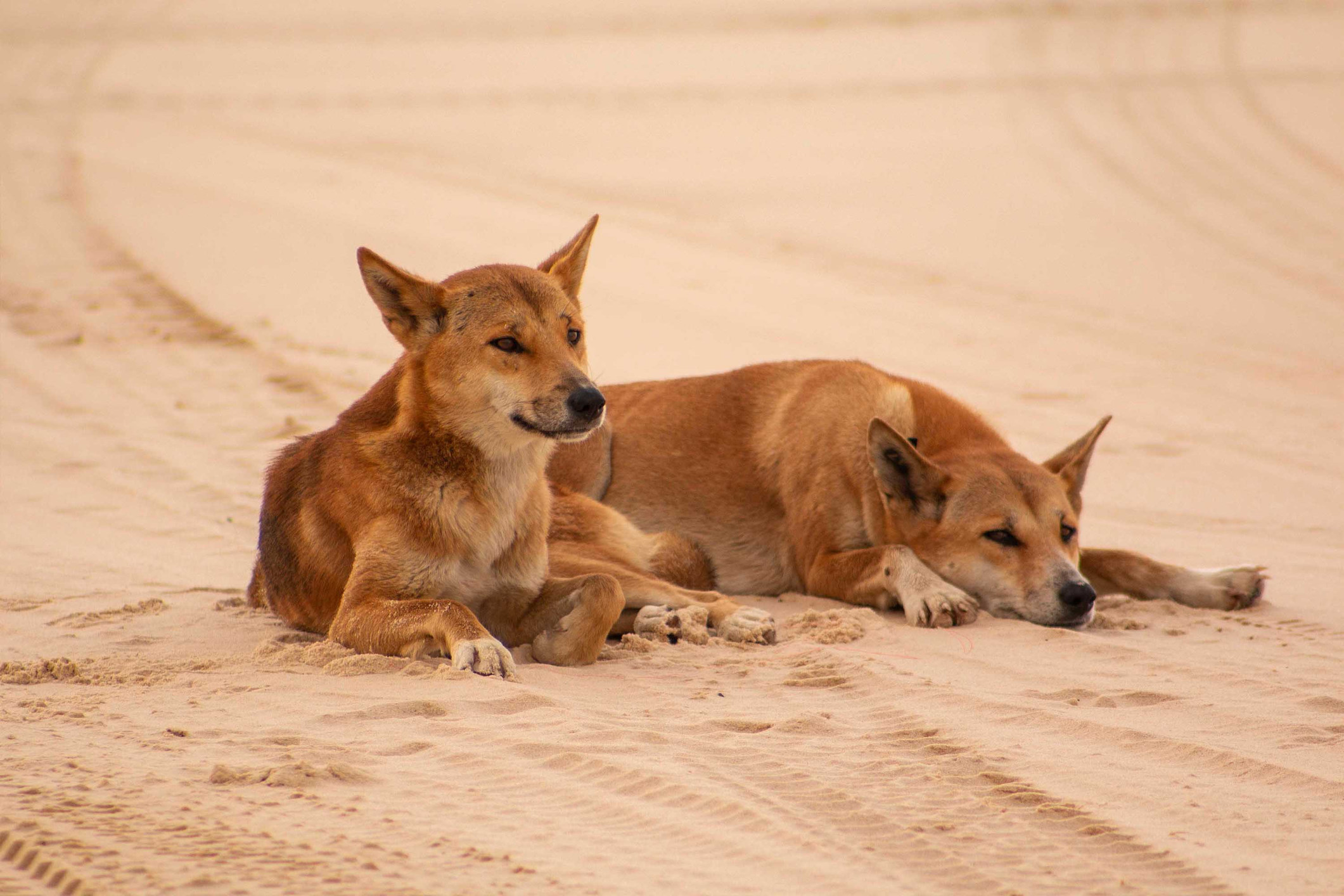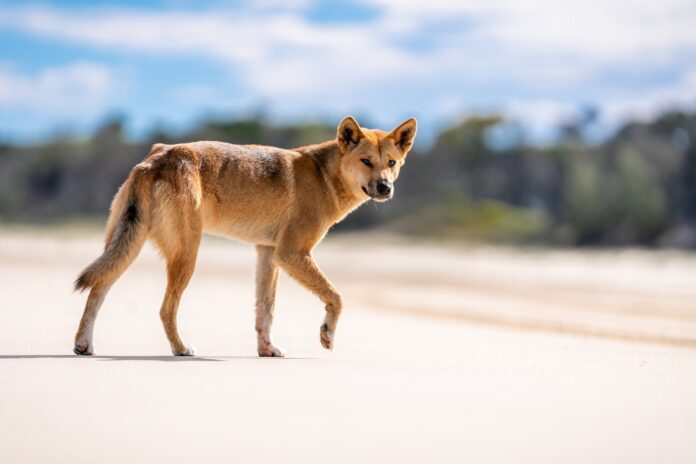Visitors to a popular Queensland island have been urged to take precautions amid revelations there have been almost 30 perilous encounters with dingoes so far this year.
The Department of the Environment, Tourism, Science and Innovation issued a media statement encouraging people to ‘Be dingo-safe’ during the busy Easter break.
The DETSI said people should carry a dingo safety stick, avoid walking alone, refrain from running and ensure that children are always close.
Ranger in Charge Dr Linda Behrendorff said dingoes can be anywhere at any time.
“Holiday periods are always busy on K’gari and residents and visitors should be thinking about our safety messages at all times,” she said.
Want more free local news? Follow Sunshine Coast News on Facebook, LinkedIn and Instagram, and sign up for our FREE daily news email.

“There have been 28 high risk incidents on the island this year and we want to get through this holiday period without any further interactions.”
That was from January 1 to April 9, when there was an incident, on average, every 3.5 days.
Among them were three women bitten during a tour, a boy who was bitten from behind and a four-year-old who was bitten in shallow water.
“Dingoes should never be fed or approached for photos and if they’re lingering around camping areas they should be deterred through making assertive and loud noises.
“Fishers should never let dingoes get access to discarded bait and fish frames should be buried at half a metre deep.
“Throwing one piece of bait or unwanted sausage can instantly change the behaviour of a dingo and that can lead to changes in behaviour of a dingo pack.
“Human intervention through deliberate or inadvertent feeding of dingoes or by approaching them for selfies is unlawful and can lead to negative interactions.
“To stay safe and protect the unique wildlife, we’re asking all visitors to remain vigilant, secure food and rubbish properly, and Be dingo-safe!”
Visitors to K’gari are reminded to: always stay close (within arm’s reach) of children and young teenagers; always walk in groups; always carry a stick when walking; camp in fenced areas where possible; do not run – running or jogging can trigger a negative dingo interaction; never feed dingoes; lock up food stores and iceboxes (even on a boat); never store food or food containers in tents; and secure all rubbish, fish and bait.
For more information go to K’gari dingoes.





